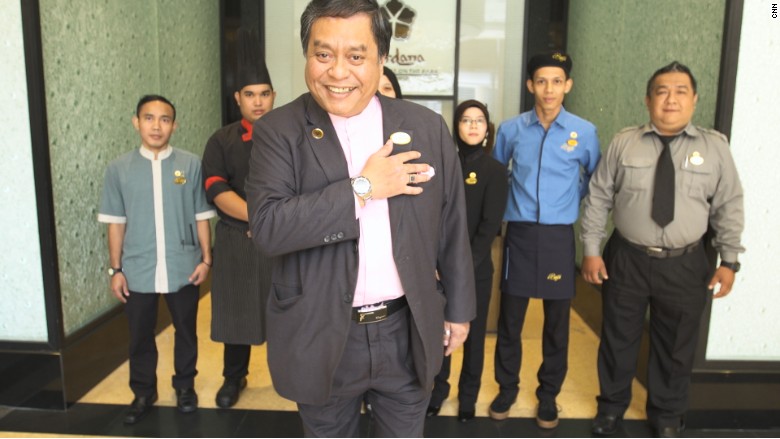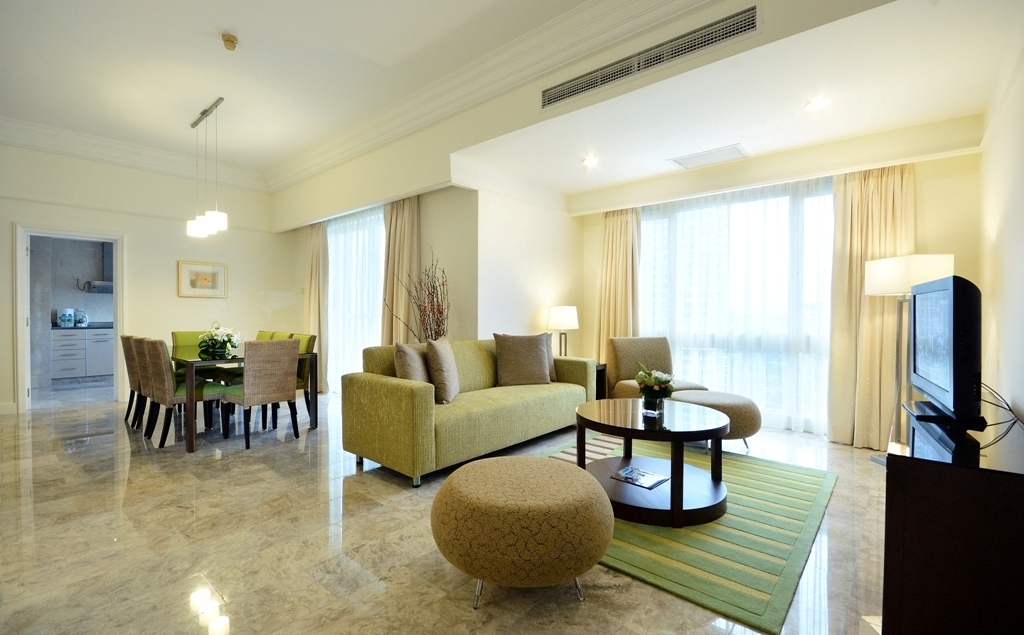Malaysia's First Halal Hotel Allows Non-Muslim Guests To Eat Pork And Drink Alcohol
It is located just minutes away from the Petronas Twin Towers.
Set in the midst of Kuala Lumpur's most vibrant nightlife, is Malaysia's first halal-certified hotel - the PNB Perdana Hotel
PNB Perdana Hotel is owned by Permodalan Nasional Berhad (PNB) and jointly managed by PNB Management Services Sdn Berhad and Darby Park (Management) Pte Ltd.
It is the first Muslim-friendly hospitality brand in Malaysia and is easily accessible by public transportation thanks to its strategic location - just a stone's throw away from the Petronas Twin Towers and LRT stations. Halal refers to goods and services that are permissible under the Sharia law.
The hotel offers 338 units of suites, all of which come with a complete kitchenette, a spacious living and dining area and a workstation. Perdana On The Park also offers other facilities like tennis and squash courts, function rooms, swimming pool, and a gym.
So, what sets this halal hotel apart? How do they ensure that it complies with the Sharia law?
For starters, PNB has hired a Sharia law academic to ensure that the hotel's operations are compliant with Islamic principles. According to CNN Money, the academic trains the staff and delivers daily religious talks.
The food cooked at PNB Perdana hotel is strictly halal. However, non-Muslim guests are allowed to eat pork and/or drink alcohol in their rooms, which will be thoroughly cleaned with a special process to ensure that it is halal for the next guest.
Women and men can mix at the hotel gym, but there is a particular time dedicated only for female guests between 9 - 11pm daily.
Other than that, it's like any other hotel in the world. PNB Hotel's general manager, Ahmad Zambri said that, "It's like a normal hotel".
Speaking to CNNMoney, Director of the Department of Islamic Development Malaysia's (Jakim) Halal Hub Division, Sirajuddin Suhaimee, said that the number of businesses applying for halal certifications is increasing rapidly
Sirajuddin explained that the "drastic" increase is about 25% to 30% every year, since 2012.
While the applications are increasing, Sirajuddin said that it isn't easy to obtain a halal certification. It requires a rigorous approach from the hotel's restaurants and kitchens - "It covers all the halal product supply chains, from the ingredients, to the process, to the packaging and also the storage".
With Malaysia's halal travel industry ranked as the second most developed in the world, Sirajuddin thinks that having a halal-certified establishment is a good marketing tool for businesses as it can help to attract Muslim travellers - both local and foreign. Practicing Muslims make up 60% of the local Malaysian population.
A study released by Thomson Reuters last October, said that the amount spent by Muslims on outbound travels is expected to increase from USD151 billion in 2015 to USD243 billion in 2021.


